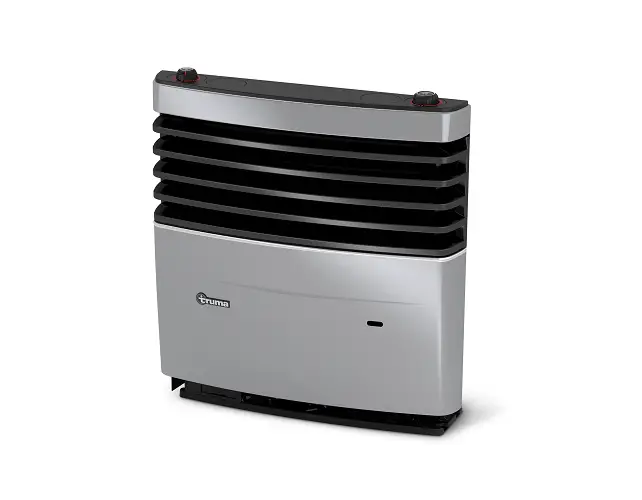The Truma caravan heater is a useful product for caravans, vans, and motor homes. Its design features an allowance to install it in different positions. Despite that convenience the Truma caravan heater does experience some issues. We shall be discussing some common Truma caravan heater problems.
Table of Contents
What Is The Truma Caravan Heater?
The Truma caravan heater is a gas or LPG powered heater. It can be used not only in caravans but also in vans and motor homes. They come in different forms, with some being dual fuel. As in, some Truma caravan heaters can run on both gas and electricity. It is important to have an appreciation of some of the common Truma caravan heater problems.
Truma Caravan Heater Problems
A Truma caravan heater is generally a sophisticated piece of equipment. It is designed to work optimally and often does but problems may occur sometimes. Prevention and addressing of problems is best done when you know the common problems at play. Here are some of the Truma caravan heater problems:
1. Heater Reports An Error
This is one of the problems Truma caravan heater users may encounter. This is scenario where the heater runs for some time. Then at some point the heater starts reporting an error. This is a problem that could be caused by:
- Warm air exhausts could be blocked
- There may be blockages in air circulation
- Gas pressure regulator may be frozen
- There could be excess gas in the cylinder
Troubleshooting Heater Reports An Error Problem
It is vital that you conduct thorough checks to establish the real issue at play. This will save you the trouble of pursuing unnecessary avenues. Some of the solutions to this problem are:
- Ensure warm air exhausts are not blocked
- Ensure air circulation is optimal
- Ensure gas pressure regulator is working properly and not frozen
- Lower gas level in the cylinder or use different type of gas
2. Heater Is Not Heating Properly Or At All
Another common Truma caravan heater problem is the heater not working. Typically you may find that the heater will not blow hot air and or elements may not heat up. This is a problem that can stem from a wide range of possible causes. Some of the probable causes are as follows:
- Thermostat may be damaged, old, or faulty
- Control switch may be damaged or faulty
- Control board could be damaged or worn out
Troubleshooting Heater Is Not Heating Properly Or At All Problem
You must do some checks to figure out where the issue is coming from. Once you have narrowed down the possible causes of the problem, you can try out the following solutions:
- Fix or replace the thermostat
- Fix or replace the control switch
- Fix or replace the control board
- Fit a remote temperature sensor
3. Heater Not Working On Electric
This is a common Truma caravan heater problem. It particularly affects Truma caravan heaters with dual fuel functionality. You may encounter challenges where the heater fails to work on electric. It will only be working on gas. Some of the probable causes of this problem are:
- Lack of corresponding voltage supply to the heater
- Heating elements could have gotten damaged or faulty
- Heater’s control board could be faulty or damaged
Troubleshooting Heater Not Working On Electric
This is a fairly common problem. Some may not find it necessary to address the issue though. This is because some people find it more cost-effective to run the heater on gas. Anyways, it would be good to have the heater working on both. Some solutions you can explore are:
- Ensure the corresponding voltage supply is getting to the heater
- Fix or replace damaged or faulty heating elements
- Fix or replace the heater’s control board
4. Heater Making Strange Or Loud Sounds
It may happen to first time users or to some who have owned Truma caravan heater for some time. Some of the probable causes of this problem are:
- The grill or gauze of the heater could be corroded or damaged
- Dirt could have accumulated on the burner over time
- The pilot air intake pipe could be dirty
- Thermocouple may be faulty or damaged
Troubleshooting Heater Making Strange Or Loud Sounds Problem
Sometimes the issue can be addressed without making any replacements or fixes. Here are some of the solutions you can explore:
- Clean or replace the grill or gauze
- Thoroughly clean the burner or the whole heater in general
- Clean or replace the pilot air intake pipe
- Fix, realign, or replace the thermocouple
5. Fan Clicking Noise
This is a common Truma caravan heater problem amongst many users. The heater may be working but producing an annoying clicking noise. In some cases, there may be that clicking sound but with the heater not working. Possible causes are:
- Fan bearing may be worn out
- Cowling may be loose
- Dust may have built up in the fins
Troubleshooting Fan Clicking Noise
This is usually a fairly easy problem to address. Some of the solutions to try out are:
- Fix or replace the fan bearing
- Tighten or realign the cowling
- Clean up the fins
How To Avoid Truma Caravan Heater Problems
The most important thing is to acquaint oneself with the user manual. This will help you build a framework of responsible use. It is also important to regularly clean your heater and store it in clean spaces. Always do regular checks before and after using it.
Are Gas Heaters In Caravans Safe?
It is generally effective to use gas heaters in a caravan. They work quite well, all things considered. However, standard camping gas heaters are not recommended for use inside caravans. Using them outdoors will be okay but in confined spaces is considered unsafe.
Why Do I Have To Reset My Heater?
The rest button is meant to work as a safety feature. For instance, it can prevent overheating from triggering a circuit breaker.
Conclusion
A Truma caravan heater is a worthwhile possession. It brings about convenience. You just have to ensure you do not get stuck by not knowing how to address the common problems. Common Truma caravan heater problems can be minimized or avoided altogether.

